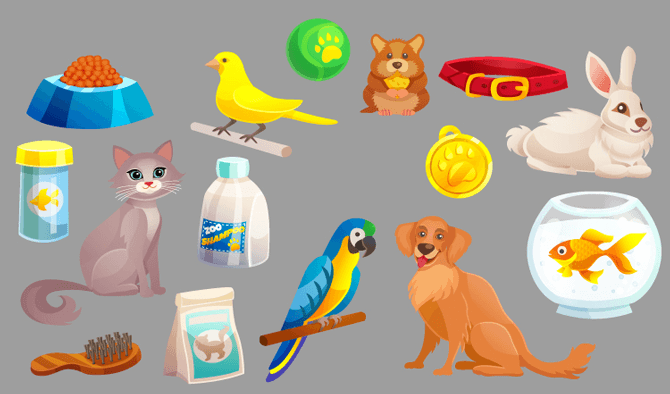Thinking of starting your own business in 2024? Starting a wholesale business is a great choice with today’s technology and global online shopping trends. Whether you want big profits from large orders or unique products, there’s a wholesaler for you.
This blog post will explore some of the best wholesale businesses to start in 2024 and how to maximize their profitability potential. Here are 10 ideas on what type of Wholesale business venture can set you up for success!
Overview of the Wholesale business model
The wholesale business model is popular among entrepreneurs. It’s about buying many goods at a lower price from manufacturers and selling them to retailers or other businesses for more money.
If you want to start a wholesale business, plenty of good options exist. But be sure to do research and know your customers well for success. A wholesale business can make good profits with careful planning and strategy.
Advantages of starting a Wholesale business
Starting a wholesale business can offer several advantages. Here are a few key benefits:
- Cost savings: As a wholesaler, you get to buy products in bulk at lower prices, which means you save money.
- Profit margins: Wholesalers can enjoy healthy profit margins by buying products at lower prices and selling them at a higher price to retailers or other businesses. The difference between the wholesale price and the retail price can be significant.
- Wide customer base: As a wholesaler, you’re not limited to one place. You can sell to shops, online stores, restaurants – basically, wherever there’s demand.
- Relationship building: Operating as a wholesaler provides opportunities to establish strong relationships with manufacturers, suppliers, and retailers. These relationships can lead to long-term partnerships, exclusive deals, and preferential treatment, further enhancing your business prospects.
- Flexibility: Wholesale businesses offer flexibility regarding product range and target market. Depending on market demand and your expertise, you can choose to specialize in a particular industry or offer a diverse range of products.
- Scalability: The exciting part is that your wholesale business can expand over time. Start small, and as you grow, you can introduce more products, reach new markets, and become a significant player.
Recommended Blog for You
👉 Wholesale Pricing Strategies That Will Grow Your Business
👉 Comparing Wholesale Price vs Retail Price: What’s the Difference?
👉 5 Best Software for Wholesalers: Unlock Your Wholesale Business Potential
👉 Benefits of Using a WooCommerce Wholesale Manager Plugin
👉 5 Wholesale Business Ideas That Work
Overview of the Best Wholesale Businesses to Start in 2024
E-commerce
Overview of the eCommerce Industry
The e-commerce industry involves buying and selling goods and services online. It has experienced tremendous growth and transformation, becoming one of the most influential industries globally. E-commerce provides convenience, accessibility, and a wide range of products to consumers, driving its popularity.

Key considerations for success
- Supplier Relationship: Focus on nurturing strong relationships with suppliers to ensure a reliable and efficient supply chain.
- Online Presence: Optimize your online presence to reach a wider audience and make it easy for customers to find and engage with your business.
- Customer Experience: Enhance the overall customer experience by providing excellent service, personalized interactions, and addressing customer needs effectively.
- Marketing Strategies: Fine-tune your marketing strategies to effectively promote your products or services and reach your target audience.
Potential Challenges and How to Overcome Them:
- Intense Competition: The eCommerce market is tough, with lots of competition. To differentiate, offer special products, give customized customer experiences, and use your knowledge in a specific area.
- Fulfillment and Logistics: Efficient fulfillment and logistics present another hurdle. Streamline operations by investing in reliable systems and partnerships with trusted shipping providers to ensure timely and accurate deliveries.
- Technology and Security: Keeping up with technology and security demands is a constant concern. Regularly update your eCommerce platform, embrace the latest technologies, and prioritize cybersecurity measures to build trust with customers and safeguard transactions.
Clothing and Apparel
Overview of the clothing and apparel industry
The clothing and apparel industry is a lucrative wholesale sector. It encompasses various segments, including fashion, sportswear, casual wear, and more. Consumer trends, seasonal demands, and evolving fashion preferences drive the industry.

Key Considerations for Success in Clothing and Apparel Wholesale Business:
- Trend Analysis: Constantly research and analyze market trends. Adapt product offerings to meet changing consumer demands and fashion trends.
- Branding and Marketing: Develop a unique brand identity and market it effectively across all platforms. Engage customers with compelling content and promotions.
- Quality Control: Implement strict quality control measures. Ensure all products meet high standards to build trust and customer loyalty.
- Inventory Management: Efficiently manage inventory to avoid stockouts or overstocking. Use technology for accurate forecasting and real-time tracking.
Potential Challenges and How to Overcome Them:
- Seasonal Variations: Seasonal Variations, where sales may fluctuate with changing seasons, pose a challenge. Address the impact of seasonal trends in the clothing industry by planning and adjusting inventory. Diversify products for different seasons or offer timeless fashion staples.
- Intense Competition: Intense competition in eCommerce is a constant challenge. Stand out in the competitive clothing industry by targeting niche markets, emphasizing unique designs, sustainability, and exceptional customer service for a memorable shopping experience.
- Brand Building: Establishing and promoting a distinctive brand identity can also be a hurdle. Overcome the challenge of brand recognition by investing in effective branding strategies, collaborating with influencers, and leveraging social media platforms.
Beauty and Personal Care
Overview of the beauty and personal care industry
The beauty and personal care industry encompasses many products, including skincare, haircare, makeup, fragrances, and toiletries. It is a thriving sector with significant growth potential. The industry is driven by consumer demand for self-care, beauty trends, and evolving skincare routines.

Key Considerations for Success in Beauty and Personal Care Wholesale Business:
- Product Selection: Choose the right mix of beauty and personal care products that align with market trends and cater to the preferences of your target audience.
- Branding and Marketing: Focus on effective branding and marketing strategies to enhance the visibility and appeal of your beauty and personal care products in the competitive market.
- Supplier Relationship: Build strong and reliable relationships with suppliers to ensure a steady and quality supply of products, fostering a collaborative and mutually beneficial partnership.
- Product Knowledge and Expertise: Deepen your understanding and expertise in beauty and personal care products to provide informed recommendations and build trust with customers, establishing your business as a reliable source of quality products.
Potential Challenges and How to Overcome Them:
- Market Saturation: The market is saturated, making it challenging to stand out. Overcome market saturation by targeting a specific niche, offering unique products, or emphasizing sustainability in the beauty and personal care industry.
- Regulatory Compliance: Meeting regulatory requirements poses a challenge due to the complex and evolving nature of beauty product regulations. Ensure compliance by understanding local regulations, adhering to safety standards, and partnering with certified suppliers.
- Changing Consumer Preferences: Consumer preferences in beauty and personal care are dynamic, making it challenging to anticipate and adapt to shifting trends. Adapt to changing consumer preferences by staying informed about beauty trends, conducting market research, and innovating product offerings to meet customer demands.
Home and Garden
Overview of the Home and Garden Industry
The home and garden industry encompasses various products and services related to home improvement, gardening, outdoor living, home furnishings, and homewares. It is a thriving sector with significant growth potential. The industry is driven by consumer demand for enhancing their living spaces, DIY projects, and a growing interest in sustainable and eco-friendly practices.

Key Considerations for Success in Home and Garden Wholesale Business:
- Product Selection: Offer a diverse and high-quality range of home and garden products to ensure a steady and appealing supply chain for your business.Supplier Relationships: Cultivate strong and reliable relationships with suppliers to ensure a consistent and efficient flow of products, promoting a collaborative and mutually beneficial partnership.
- Inventory Management: Efficiently manage inventory to meet demand without overstocking. Implement systems for easy tracking and forecasting.
- Supplier Relationships: Cultivate strong relationships with reliable suppliers. Good rapport ensures timely delivery, quality products, and potential for better negotiation on prices.
- Competitive Pricing: Balance profitability with market affordability. Pricing your products competitively is crucial for success in the wholesale business.
- Niche Specialization: Consider factors like your expertise, passion, and target audience while selecting your niche. Specializing can help you differentiate yourself in the market.
Potential Challenges and How to Overcome Them:
- Seasonal Demand: Fluctuations throughout the year can challenge maintaining consistent sales. Overcome fluctuations by diversifying products, emphasizing year-round appeal like indoor plants and sustainable items.
- Intense Competition: The highly competitive market makes it challenging to differentiate your brand. Stand out in a competitive market by offering unique products, exceptional service, and promoting sustainability.
- Supply Chain Management: Managing the supply chain efficiently can be complex, especially when dealing with various products for home and garden. Ensure timely product delivery by efficiently managing the supply chain, working closely with suppliers, and utilizing inventory management software for effective order fulfillment.
Cleaning and Maintenance Products
Overview of the electronics industry
The cleaning and maintenance products industry is a vital sector in the wholesale business. It encompasses many products, including cleaning supplies, janitorial equipment, sanitation products, and maintenance tools. The demand for cleanliness, hygiene, and a safe and healthy environment drives the industry.

Key Considerations for Success in Cleaning and Maintenance Products Wholesale Business:
- Product Selection: Offer a diverse range of cleaning supplies, from chemicals to equipment, staying updated with trends and eco-friendly solutions.
- Supplier Relationships: Build strong ties with reliable manufacturers for quality products, competitive pricing, and exclusive offerings.
- Target Market Identification: Tailor products to specific industries, like healthcare or hospitality, by understanding their needs and regulations.
Potential Challenges and How to Overcome Them:
- Increasing Competition: More companies entering the market, making it tougher. Distinguish yourself with great service, quality, and pricing, emphasizing uniqueness through eco-friendly options.
- Regulations and Environment: Adhering to rules and ensuring environmental sustainability can be challenging in this industry. Stay updated, ensure compliance, and promote eco-friendly alternatives to customers.
- Supply Chain Management: Managing the supply chain for cleaning and maintenance of products can be complex. Efficiently manage the supply chain by building supplier relationships and streamlining order processes for optimal efficiency.
Toys and Games
Overview of the toys and games industry
The toys and games industry is a dynamic and lucrative sector that includes a wide range of products designed for entertainment, education, and development. This industry encompasses various segments such as board games, puzzles, outdoor toys, construction sets, dolls, action figures, and electronic games. The global toys and games market has experienced steady growth in recent years and is projected to continue expanding.

Key Considerations for Success in Toys and Games Wholesale Business:
- Product Selection: Offer a curated range of toys and games for various age groups, blending classics with trending items.
- Supplier Relationships: Build strong ties with reliable manufacturers, ensuring quality, competitive prices, and exclusive product options.
- Market Research: Understand your audience, their preferences, and industry trends through thorough research, informing decisions on products, pricing, and marketing.
Potential Challenges and How to Overcome Them:
- Seasonal Demand: Fluctuations in demand throughout the year can be challenging. Diversify products for year-round appeal and manage inventory efficiently during peak seasons like holidays and special occasions.
- Competitive Market: Facing strong competition from other businesses is also a hurdle. Offer unique products, build customer relationships, and rely on positive reviews.
- Safety and Compliance: Ensuring that toys comply with safety regulations and industry standards. Stay informed about safety requirements, conduct regular product testing, and adhere to relevant regulations.
Pet Supplies
Overview of the pet supplies industry
The pet supplies industry encompasses the production, retailing, and consumption of a wide range of pet products. This industry includes pet food, pet care products, pet accessories, grooming supplies, and veterinary services. The global pet care market has experienced significant growth in recent years due to increasing pet ownership and an emphasis on pet health and well-being.

Key Considerations for Success in Pet Supplies Wholesale Business:
- Product Selection: Offer a variety of pet supplies for different pets, including high-quality food, toys, and grooming items. Stay updated on trends and consider eco-friendly options.
- Target Market Identification: Tailor products for specific segments like premium or specialty items. Understand customer needs for personalized service.
- Online Presence and Marketing: Create a strong online presence with an e-commerce site. Use digital marketing and customer reviews to build trust and reach a wider audience.
Potential Challenges and How to Overcome Them:
- Competition: The pet supplies industry is highly competitive. Overcome this by differentiating your products by offering unique features or services.
- Quality Control: Ensuring consistent quality in products is crucial. Regular quality checks and strong supplier relationships can help maintain high standards.
- Regulatory Compliance: Navigating complex regulations can be challenging. Stay updated and consult with a business attorney to ensure compliance.
- Consumer Preferences: Meeting evolving consumer preferences can be tough. Conduct regular market research, adapt product offerings, and communicate effectively with your customers.
Food and Beverage
Overview of the Food and Beverage Industry
The food and beverage (F&B) industry is a vast sector encompassing all companies involved in the processing, packaging, and distributing of food and beverages. This industry includes various segments such as restaurants, cafes, grocery stores, food manufacturers, catering businesses, etc. The global food and beverage market is a thriving and essential part of the economy, serving the needs and preferences of consumers worldwide.

Key Considerations for Success in the Food and Beverage Wholesale Business:
- Product Selection: Offer a diverse range of food and beverages, including popular and niche items, organic or locally sourced products, and options for specialized diets.
- Market Research: Understand consumer trends, preferences, and industry demands through thorough research, staying informed about emerging food trends, health movements, and changing behaviors.
- Quality Control and Safety: Inspect and monitor storage conditions for freshness and contamination prevention.
Potential Challenges and How to Overcome Them:
- Competitiveness: Fierce competition in the industry makes it challenging to to make your mark. Differentiate by offering unique products, focusing on quality, and implementing effective marketing strategies to capture consumer attention.
- Changing Consumer Preferences: Consumer tastes and preferences can shift rapidly. Adapt by staying updated on trends, conducting surveys, and offering a mix of traditional and innovative options.
- Supply Chain Management: Managing and optimizing the supply chain can be complex. Managing the supply chain for raw materials and finished products is challenging. Ensure a reliable supply chain with contingency plans. Build relationships with alternative suppliers to maintain product availability.
- Regulatory Compliance: Navigating and adhering to industry regulations can be challenging. Stay updated on safety regulations, comply with requirements, and invest in staff training for enhanced food handling and safety practices.
Jewelry and Accessories
Overview of the jewelry and accessories industry
The jewelry and accessories business is all about making, selling, and distributing different types of jewelry and stylish accessories like rings, necklaces, watches, and more. This industry has been growing steadily worldwide and is expected to continue growing.

Key Considerations for Success in Jewelry and Accessories Wholesale Business:
- Product Selection: Offer a variety of jewelry and accessories to cater to different preferences and trends. Stay updated on fashion trends, materials, and designs for a wide selection.
- Quality and Authenticity: Prioritize high-quality, authentic products. Build relationships with reputable suppliers and conduct regular quality control checks to maintain customer trust.
- Market Research and Trends: Stay informed on fashion trends, consumer preferences, and emerging designs. Conduct market research to understand your target audience and curate a product range that meets current demands.
Potential Challenges and How to Overcome Them:
- Competition: The industry is highly competitive, making it challenging to assert your uniqueness. Differentiate your brand by offering unique designs, excellent customer service, and competitive pricing to attract and retain customers.
- Changing Fashion Trends: Keeping up with evolving fashion trends and consumer preferences is challenging in this industry. Stay updated on trends by regularly refreshing your inventory with new designs, materials, and styles.
- Quality Control: Ensuring consistent quality in the manufacturing and supplying of jewelry and accessories can be challenging. Make sure products meet industry standards with strict quality control processes. Regular inspections and testing verify authenticity and durability.
Health and Wellness
Overview of the health and wellness industry
The health and wellness industry encompasses a wide range of products and services aimed at promoting physical and mental well-being. This industry includes sectors such as fitness, nutrition, personal care, mental health, alternative medicine, and more.
The global health and wellness market has experienced significant growth in recent years, driven by increasing consumer awareness and a growing emphasis on self-care and preventive health measures.

Key Considerations for Success in Health and Wellness Wholesale Business:
- Niche Market Identification: Find a health and wellness niche that aligns with your target market, like organic food or fitness equipment, to cater to a distinct audience.
- Product Selection: Offer a range of high-quality health and wellness products, including established and emerging brands.
- Supplier Relationships: Build ties with reliable suppliers, adhere to regulations, and offer quality products at competitive prices. Consider supporting local businesses.
- Marketing and Education: Use social media, content marketing, and influencer collaborations to educate consumers about your products.
Potential Challenges and How to Overcome Them:
- Regulatory Compliance: Navigating complex regulations in the health and wellness industry is challenging. Stay informed on regulations, ensure product compliance, and partner with certified suppliers for proper documentation.
- Industry Competition: Facing competition within the health and wellness market is also a hurdle. Rise above with exceptional service, personalized recommendations, and a unique product selection to differentiate your business.
- Changing Consumer Trends: Adapting to evolving preferences and trends in health and wellness is challenging. Research, monitor publications, and gather feedback on trends. Adapt product offerings and marketing to meet shifting demands.
- Product Quality and Safety: Ensuring the quality and safety of health and wellness products can be challenging. Prioritize quality and safety with reliable suppliers, regular testing, and transparent customer communication.
Factors to Consider When Choosing a Wholesale Business to Start
When choosing a wholesale business to start, it’s crucial to consider several factors to ensure your success. Here are some key factors to keep in mind:
Market demand: Explore the market to find products that people really want and that are likely to grow in popularity. Study market patterns, competitors, and what customers like to make a smart choice.
Supplier network: Check out if suppliers are easy to reach and dependable. Having a good mix of reliable suppliers is crucial for a successful wholesale business.
Target market: Figure out who you’re selling to, where they are, who they are, what they can afford, and what they need. Knowing your customers helps you shape what you sell and how you promote it.
Legal and regulatory considerations: Familiarize yourself with the legal and regulatory requirements related to the wholesale industry. This includes things like getting the right licenses, and permits, paying taxes, and following industry rules.
Logistics and distribution: Consider the logistics involved in sourcing, storing, and distributing products. Evaluate transportation, warehousing, inventory management, and order fulfillment costs and efficiency.
Financial considerations: Evaluate if your wholesale business idea makes financial sense. Figure out how much it will cost to start, what you’ll spend regularly, and how much money you expect to make.
By carefully considering these factors, you can make an informed decision and set yourself up for success in the wholesale business. Remember to conduct thorough market research, develop a solid business plan, and continuously adapt to changing market dynamics.
Frequently Asked Questions
Can I start a wholesale business with limited capital?
Absolutely! Consider dropshipping or partnering with suppliers who offer low minimum order quantities. Digital platforms also allow for cost-effective marketing.
Is it feasible to start a wholesale business selling sustainable products?
Absolutely! With the growing awareness of environmental issues, there’s a rising demand for sustainable products. Starting a wholesale business focused on eco-friendly items such as reusable utensils, biodegradable packaging, and organic fabrics can be both profitable and socially responsible.
How can I stand out in the crowded fashion wholesale market?
Focus on niche markets or unique styles. Consider specializing in sustainable fashion, niche subcultures, or emerging designers. Offering exclusive designs and building a strong online presence through e-commerce platforms can also set your business apart.
Can I start a wholesale business part-time?
Absolutely! Many entrepreneurs start part-time while maintaining other commitments. As your business grows, you can decide to transition to full-time.
Are there any legal considerations when starting a wholesale business?
Yes, ensure proper licensing and compliance with local regulations. Familiarize yourself with tax obligations and product safety standards to avoid legal complications.
Is it necessary to have a physical store for a wholesale business?
Not anymore. Many successful wholesale businesses operate solely online. A well-designed website and strong online presence can be more cost-effective and accessible.
Conclusion
As we conclude our list of the 10 best wholesale businesses to start in 2024, it’s clear that there is a wealth of opportunities for aspiring entrepreneurs out there. From online marketplaces and fashion accessories to electronics and home goods, there’s something for everyone to explore. But starting a wholesale business is no easy feat. It requires careful consideration of market trends, competition, and sourcing products.
With a good plan and strong determination, entrepreneurs can create successful wholesale businesses that will do well and expand. So, if you’re ready to take the plunge and try your hand at entrepreneurship, look at our list and find the best wholesale business to start in 2024.